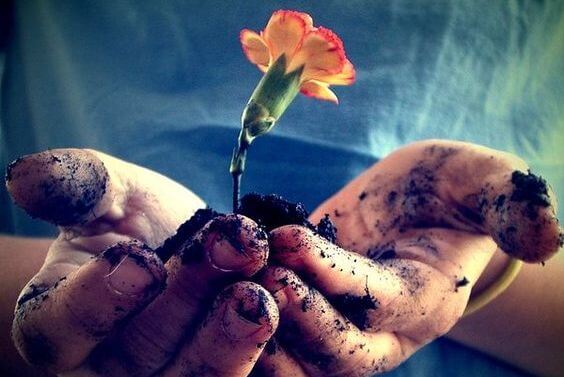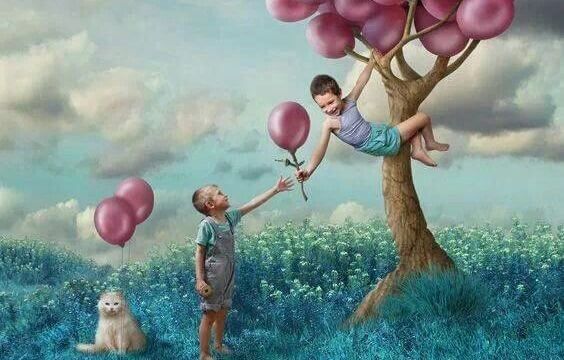The Best Response to Cruelty Is Kindness

For various reasons, some people go through life thinking they benefit from the damage other people suffer, and so it makes them happy to think about it and even cause it. The best way to respond to these people is to teach them a lesson in kindness. This is the proper method of action and respect.
The concept of good and bad has given people a lot to talk about throughout history, especially since human souls can go either way. Also, definitions of good and bad depend a lot on culture, society, and other variables that can be introduced into the debate.
Instead of a technical or scientific contribution to the topic, in this article we aim for individual reflection. We will begin with a concrete and abstract situation in which a person acts maliciously and causes harm. How should we respond to it?
Why kindness is a lesson
There are many reasons why kindness can be considered a great lesson, although we’ll never come to understand what leads other people to cause harm. Essentially, when you respond with kindness, you don’t release the person from what they’ve done, but you do free yourself from the negative emotions it caused.

It’s often quite difficult to forgive the other person, which is understandable. However, you just have to remember that you can forgive without forgetting or trusting them again. Forgiveness doesn’t make you naive or more vulnerable, it just rids you of the heavy weight that keeps the wound open.
“We shall have to meet the imposed constraints , every new act of cruelty, with ever more love and goodness to be drawn from ourselves.”
-Etty Hillesum-
Kindness acts as a lesson because it’s gratifying, it promotes solidarity, it improves self-esteem, and it opens the door to learning from pain. An act of kindness looks out for other people’s well-being as well as one’s own. Cruelty, on the other hand, only looks out for itself, seeks only to serve its own interests.
Kindness comes from the heart
One of the most common opinions is that we’re not born good or bad, but rather we cultivate kindness or cruelty as we grow emotionally. So you could say that kindness comes from the heart, and is fed by the heart. If, throughout your life, your intention was to progress without hurting anyone, how could you respond with vengeance to someone who only wishes to cause harm?

Stooping to their level of cruelty doesn’t change anything. It doesn’t fix the damage, and it only offers temporary relief. Resentment is destructive. It changes you and does not produce any positive results for yourself. And the other person will continue to watch you fall to their level. Not only will you have lost everything, but you won’t have gained anything.
“Yet a greater, unlearned skill he possessed, which was the art of kindness.”
-Ursula K. Le Guin-
Like Gandhi once said, it would be beneficial if we were the change we wanted to see in the world, no matter how big, complicated, difficult, or small the situation. We can also refer to the ethics of Kant, who stated that virtue is found in turning our own work into universal work.
Don’t tolerate cruelty around you
We’re surrounded by hate, violence, and fear, and therefore we must educate ourselves in values that contribute to social and individual well-being, values that prevent the detestable attitudes that surround us from escalating. In fact, people who have experienced it have discovered that “an eye for an eye” serves them nothing, because it makes the whole world blind.

We can’t tolerate cruelty around us, and we can’t punish others with it either. Kindness leads by example, and it doesn’t give way to poisonous feelings. It channels these feelings in a distinct manner: keep the events in your memory, but banish the negative feelings.
When faced with a hateful action, respond with a good one. And if it hurt so much that you don’t know the right path to choose, give yourself time to heal. Not to forget, but to guide your actions rationally, and not from a place of anger or rage. As a last resort, if there’s no remedy, if you can’t do anything educational, distance yourself without causing harm, because that’s not your style.
“The world is a dangerous place to live; not because of the people who are evil, but because of the people who don’t do anything about it.”
-Albert Einstein-
This text is provided for informational purposes only and does not replace consultation with a professional. If in doubt, consult your specialist.








